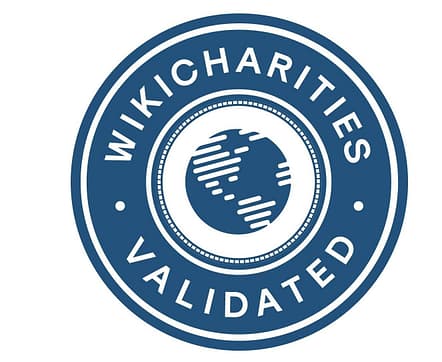Fraud in the Nonprofit Sector
How to Protect the Integrity of Nonprofits.
Introduction:
The nonprofit sector plays a vital role in addressing societal issues and creating positive change. However, like any other sector, it is not immune to the risk of fraud. Instances of fraud in the nonprofit sector undermine public trust, divert resources from intended beneficiaries, and tarnish the reputation of organizations working tirelessly to make a difference. In this blog post, we will delve into the challenges posed by fraud in the nonprofit sector and discuss strategies to detect, prevent, and address fraudulent activities.
1. Understanding Nonprofit Fraud:
Nonprofit fraud encompasses various deceptive practices, including embezzlement, misappropriation of funds, false financial reporting, and conflicts of interest. Fraud can be perpetrated by staff members, volunteers, board members, or external individuals targeting the organization. It is crucial to recognize the warning signs of fraud, such as unexplained financial discrepancies, irregularities in financial records, excessive personal expenses, and lack of segregation of duties.
Guesstimated $40 Billion of Fraud.
"A survey conducted by the Association of Certified Fraud Examiners (ACFE) estimates that all organizations lose on average six percent of their revenue to fraud every year (ACFE 2005). Applying this percentage to the nonprofit sector would suggest that the fraud loss would be approximately $40 billion each year."
Read Article: Harvard University2. Building a Culture of Ethical Conduct:
Preventing fraud starts with fostering a culture of ethical conduct within nonprofit organizations. Leadership must set a tone of integrity, emphasizing the importance of ethical behavior and transparency. Develop and communicate a comprehensive code of ethics that outlines expected conduct and encourages reporting of suspicious activities. Provide regular training to staff members and volunteers on fraud prevention, financial management, and ethical fundraising practices.
3. Strengthening Internal Controls:
Robust internal controls are critical to safeguarding nonprofit resources and preventing fraud. Implement segregation of duties, ensuring that no single individual has control over all financial processes. Conduct regular and independent financial audits to identify vulnerabilities and address any potential issues. Establish strong financial management policies and procedures, including approval processes for expenditures and regular reconciliation of accounts. Emphasize the importance of whistleblower protection and establish confidential reporting mechanisms for staff and stakeholders to report suspected fraudulent activities.
4. Promoting Transparency and Accountability:
Transparency and accountability are essential to combat fraud in the nonprofit sector. Organizations should maintain clear and accurate financial records, promptly share annual reports, and openly disclose information about program outcomes and impact. Regularly communicate with donors and stakeholders, providing updates on the use of funds and program achievements. Emphasize the organization's commitment to responsible stewardship of resources and invite external audits to validate financial integrity.

Reduce fraud by
Increasing Transparency
Learn more about the WikiCharities validation to help improve transparency.
Learn more5. Conducting Due Diligence:
Thorough due diligence is essential when hiring staff, engaging volunteers, and selecting board members. Conduct background checks, verify credentials, and seek references to ensure the integrity and suitability of individuals joining the organization. Implement a rigorous vetting process for potential partners, vendors, and contractors to mitigate the risk of fraudulent activities. Regularly monitor and evaluate performance to detect any suspicious behavior or patterns.
6. Collaborating and Sharing Best Practices:
Fraud prevention in the nonprofit sector requires collective efforts. Collaborate with other organizations, industry associations, and regulatory bodies to share best practices, lessons learned, and emerging trends in fraud detection and prevention. Establish networks that foster information sharing, support, and guidance to help organizations stay vigilant and proactive in combating fraud.
Conclusion:
Fraud poses a significant threat to the integrity and reputation of the nonprofit sector. By understanding the risks, promoting ethical conduct, strengthening internal controls, fostering transparency and accountability, conducting due diligence, and collaborating with others, nonprofits can effectively combat fraud. Safeguarding the sector from fraudulent activities ensures that resources are utilized for their intended purposes, trust is maintained, and the sector's ability to create positive change is preserved. Together, let us fortify the nonprofit sector against fraud and uphold the values of integrity, transparency, and social impact.
Read More
Interested in reading more about fraud and the nonprofit sector? Check out these articles to learn more.
- Internal Control Strategies to Limit Nonprofit Organization Fraud and Embezzlement Costs, Walden University, 2023
- Nonprofit Scandals: A Systematic Review and Conceptual Framework, Sage Journals, 2022
- Nonprofit fraud: How good are your internal controls? Strategic Finance (Vol. 98, Issue 9), 2017
- Fraud and Corruption in U.S. Nonprofit Entities: A Summary of Press Reports 2008-2011, Sage Journals, 2014
Resources
- FBI.gov: 'How We Can Help You" - Charity and Disaster Fraud & Resources
- IRS Article: "Dirty Dozen: IRS warns of scammers using fake charities to exploit taxpayers"


